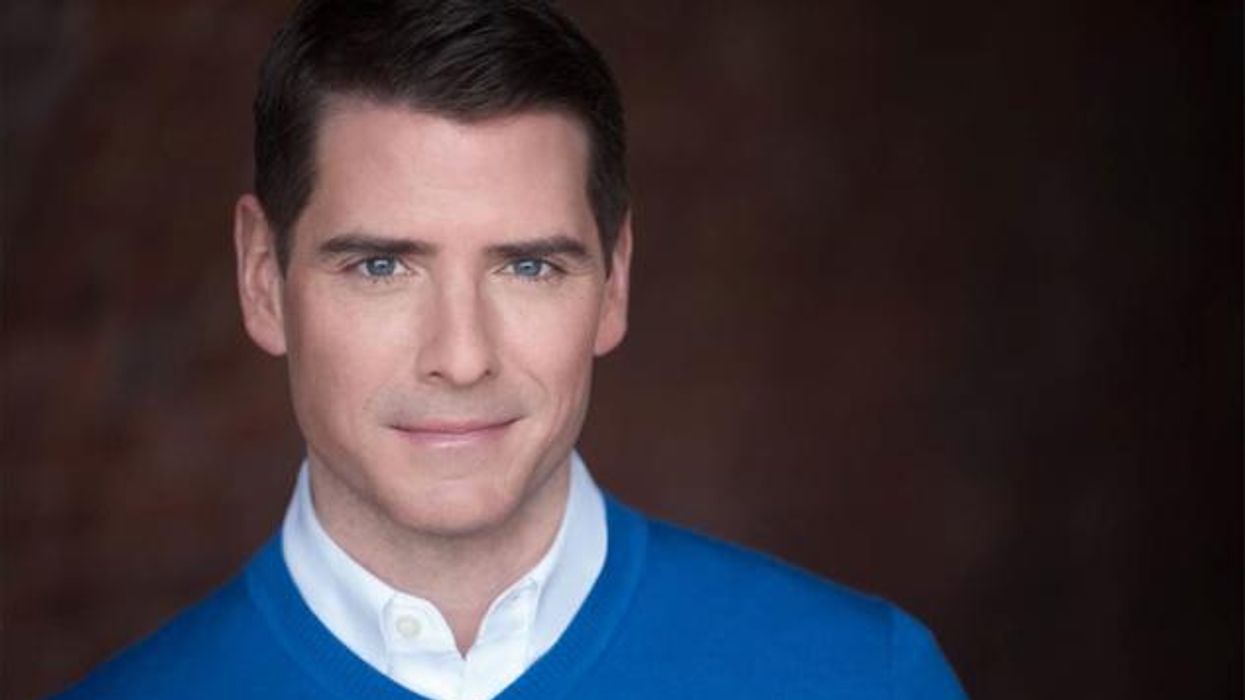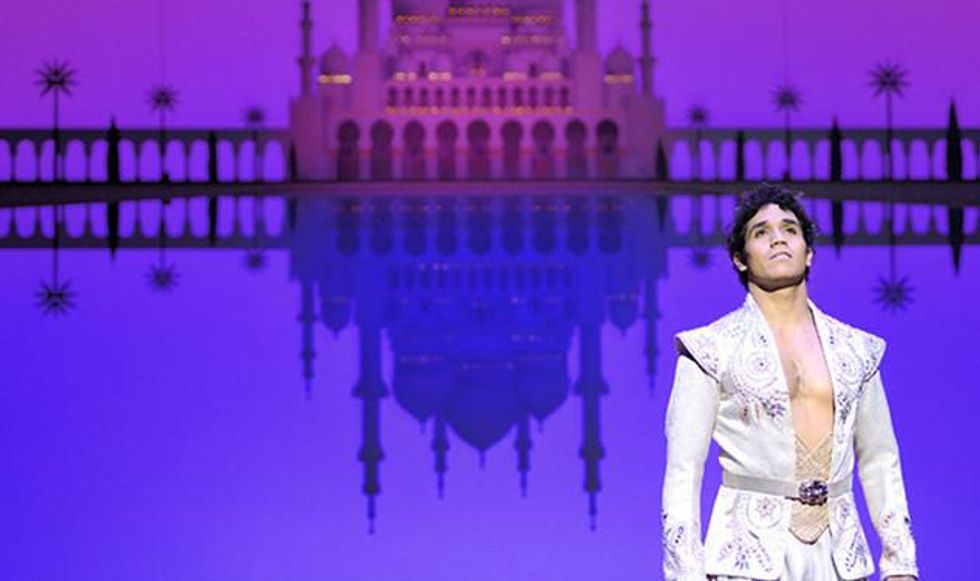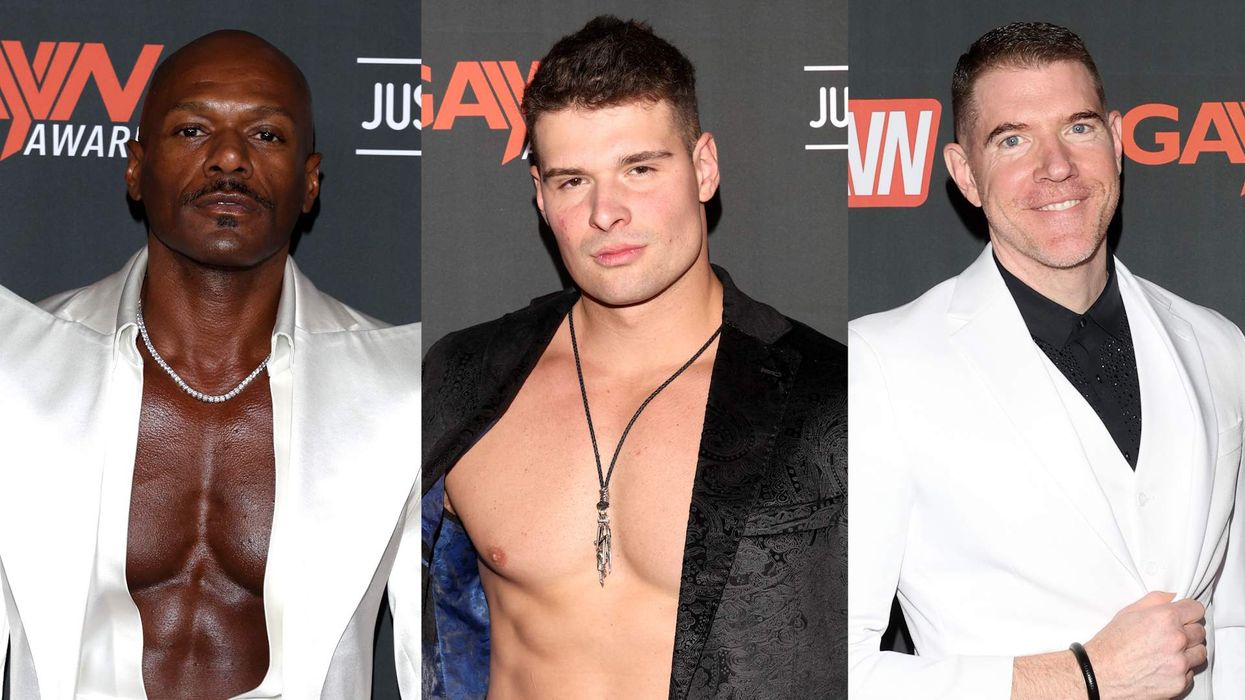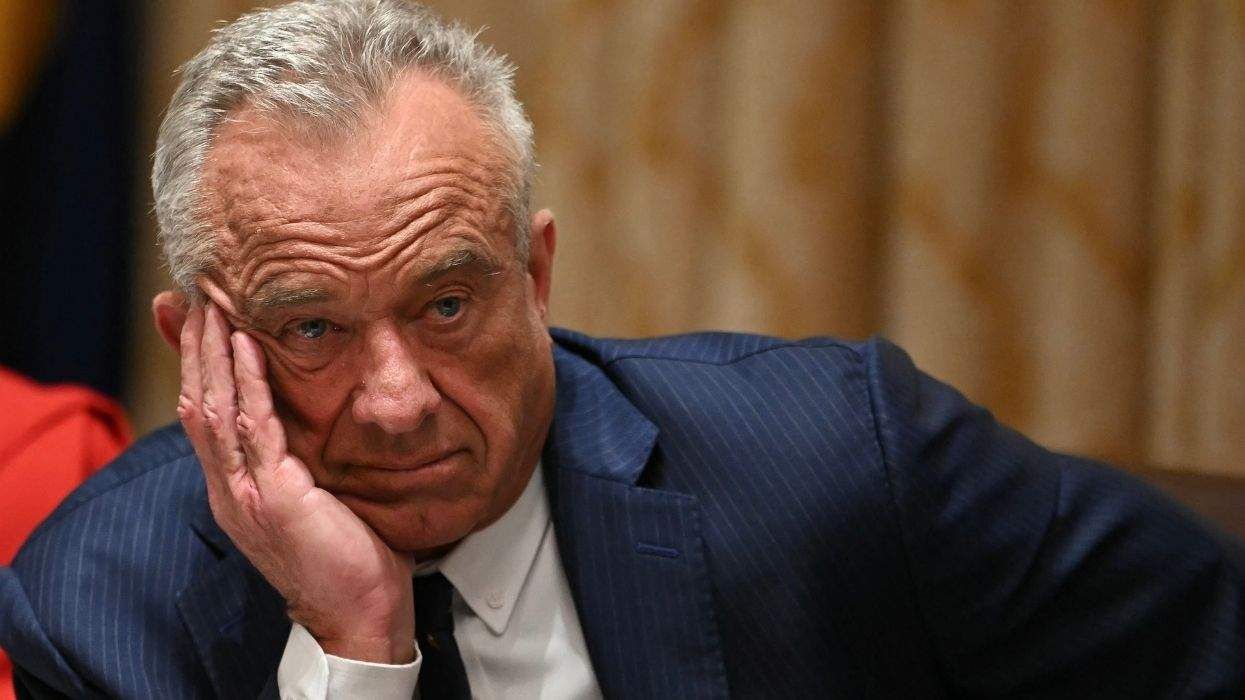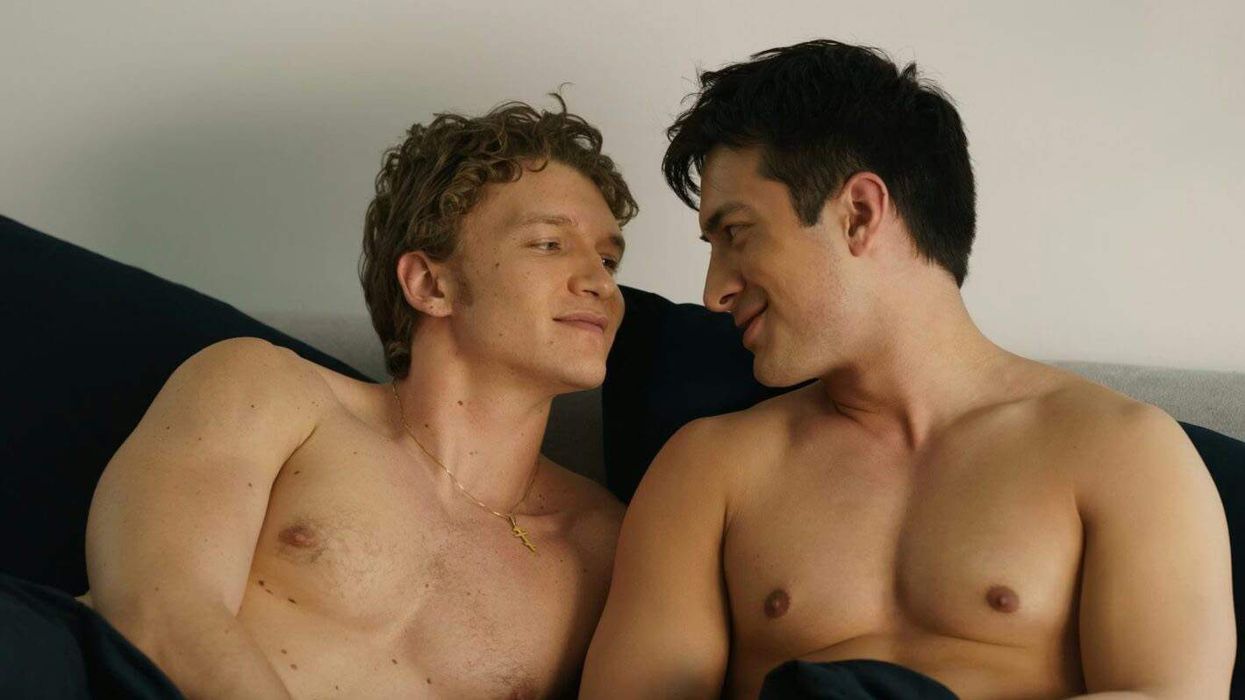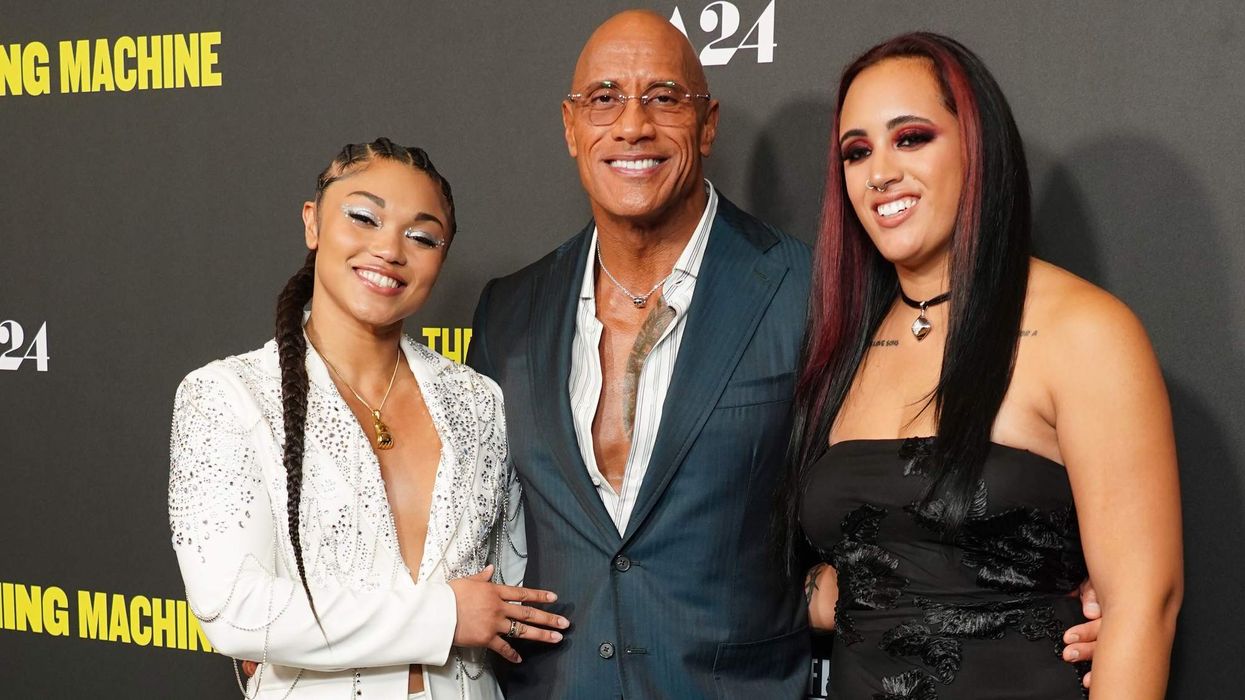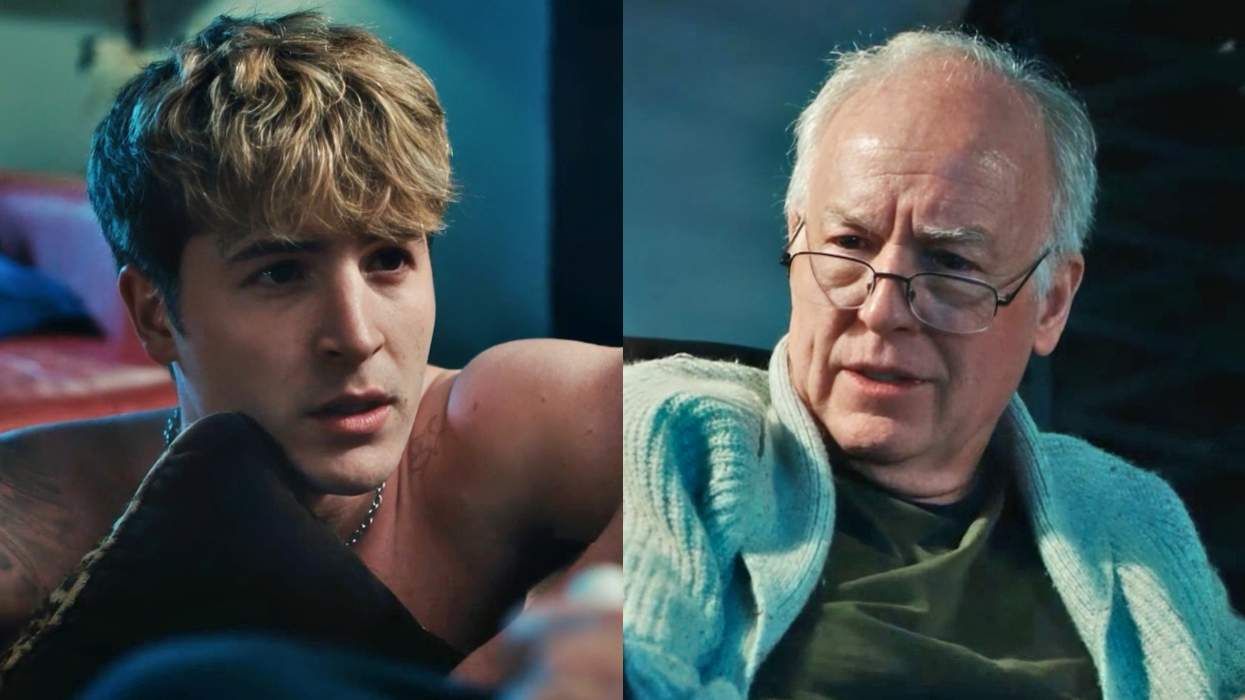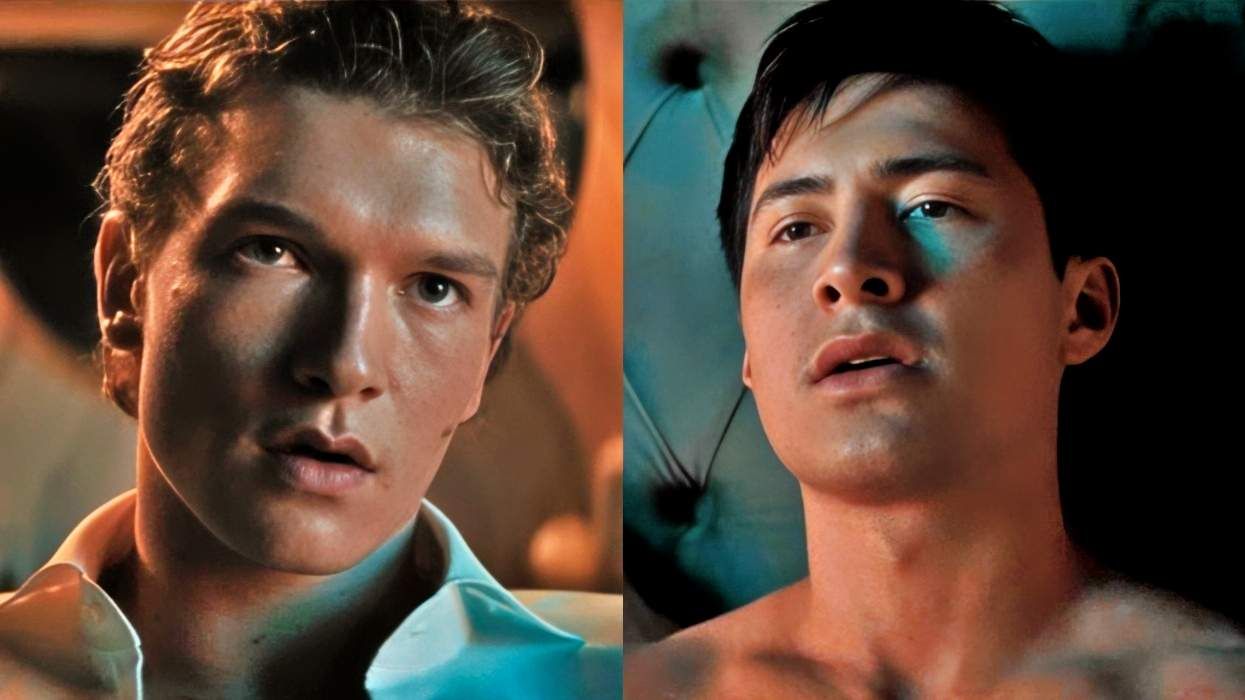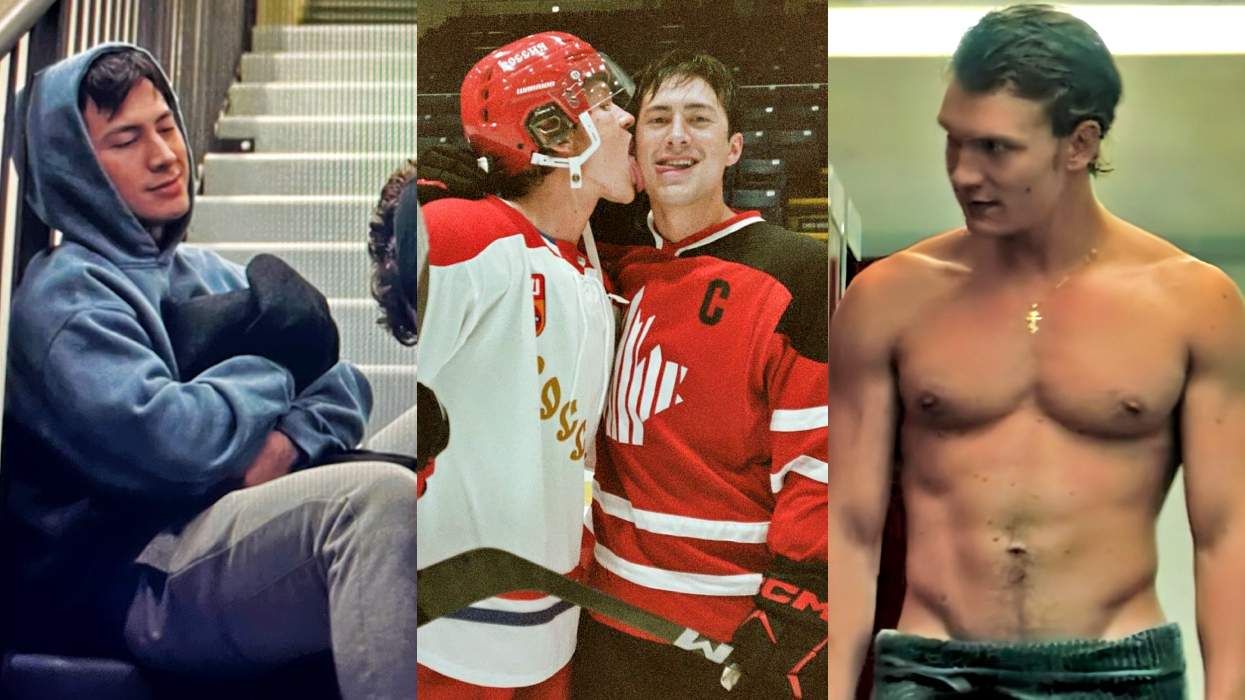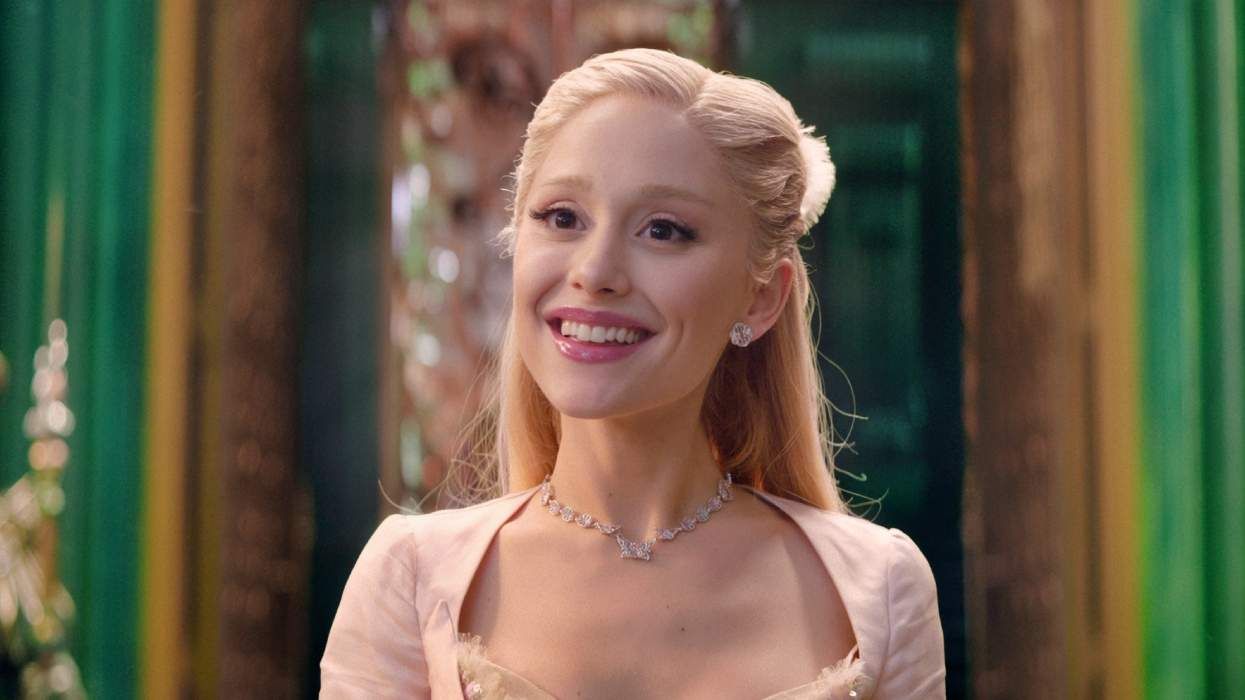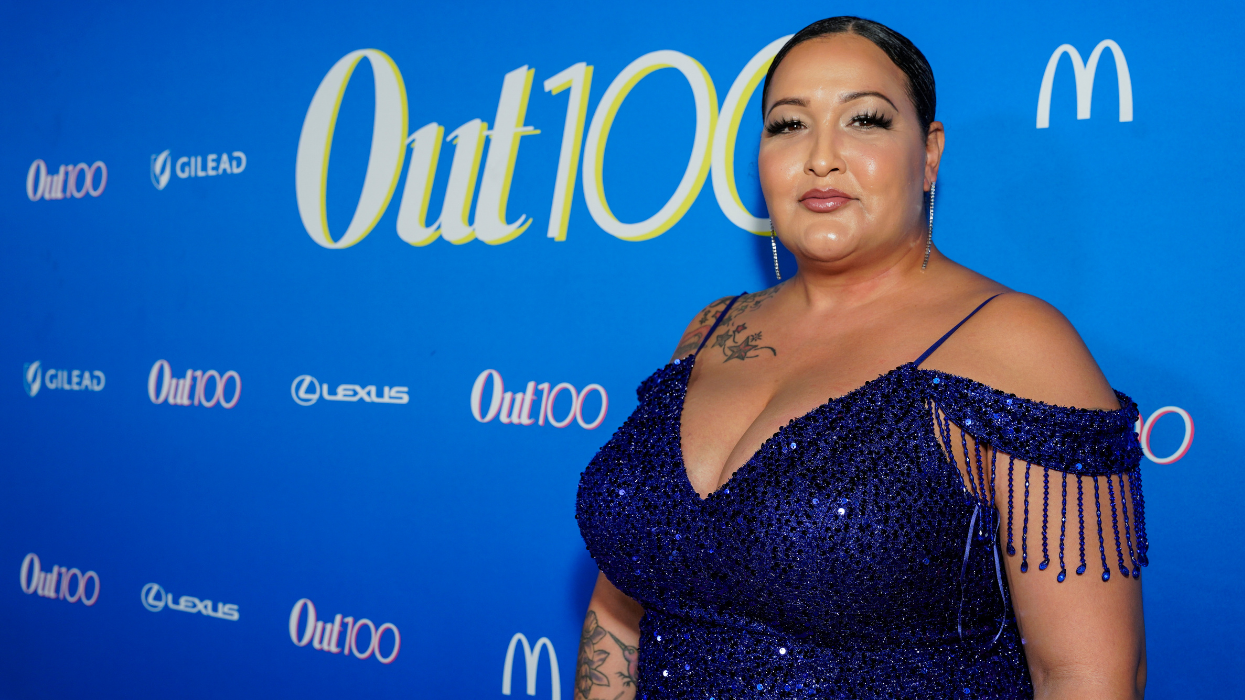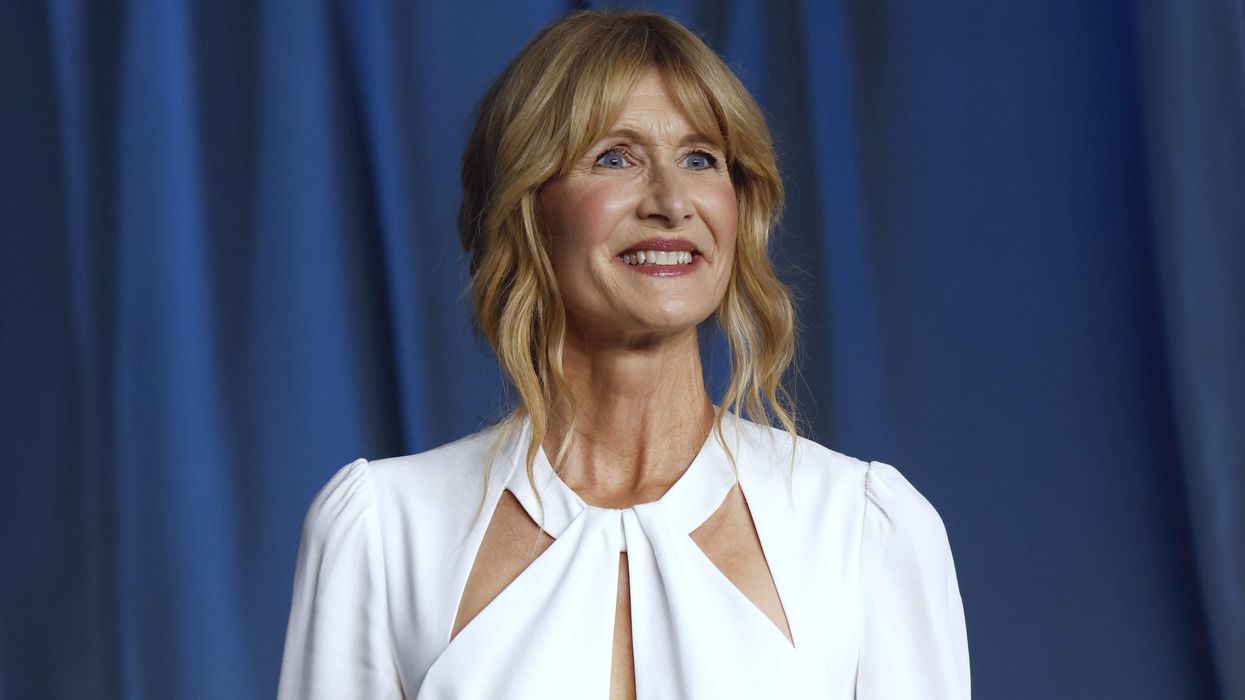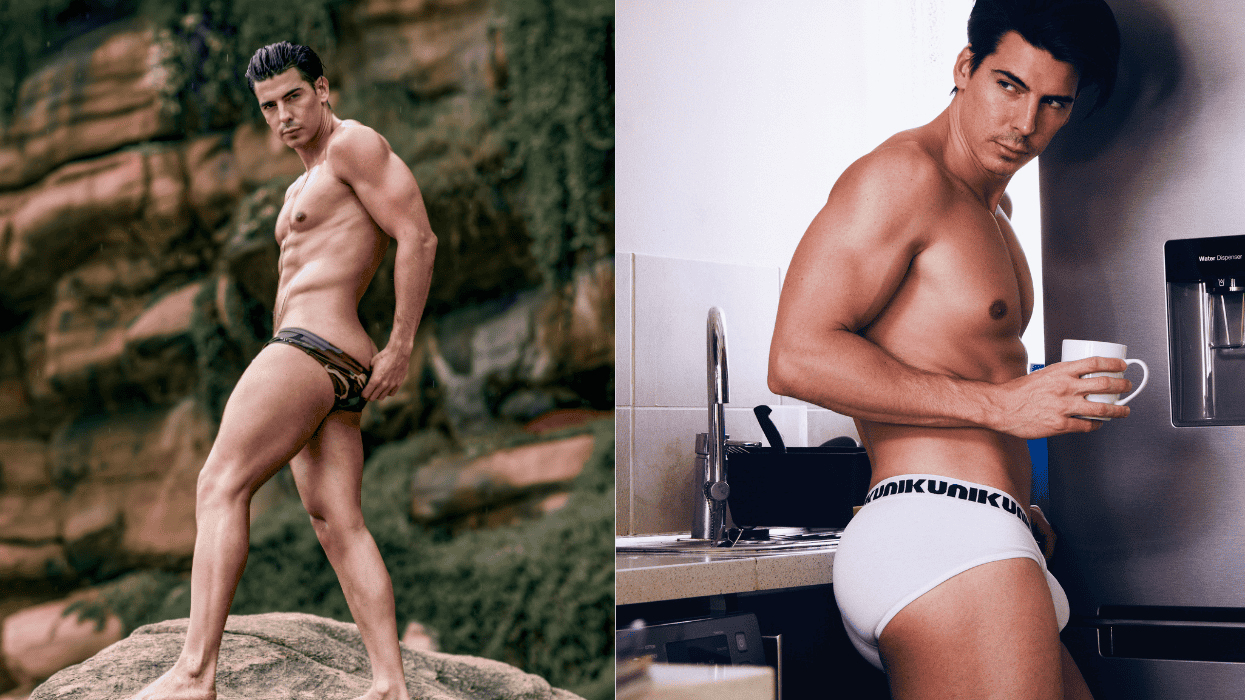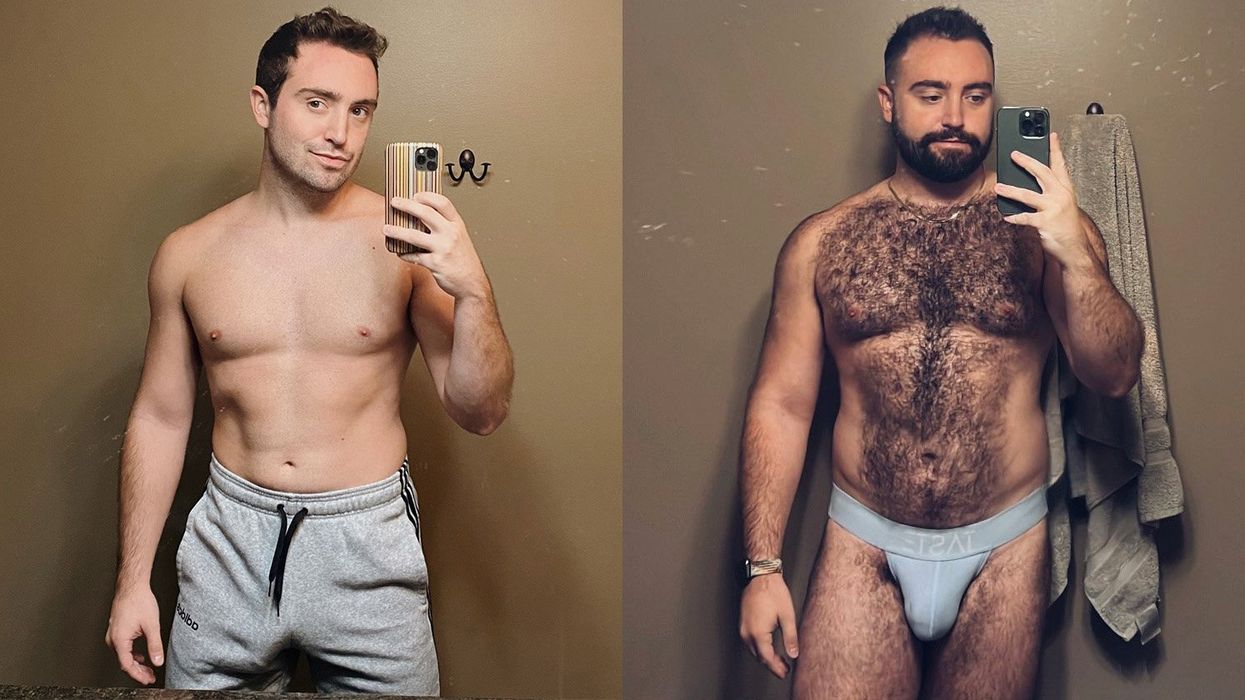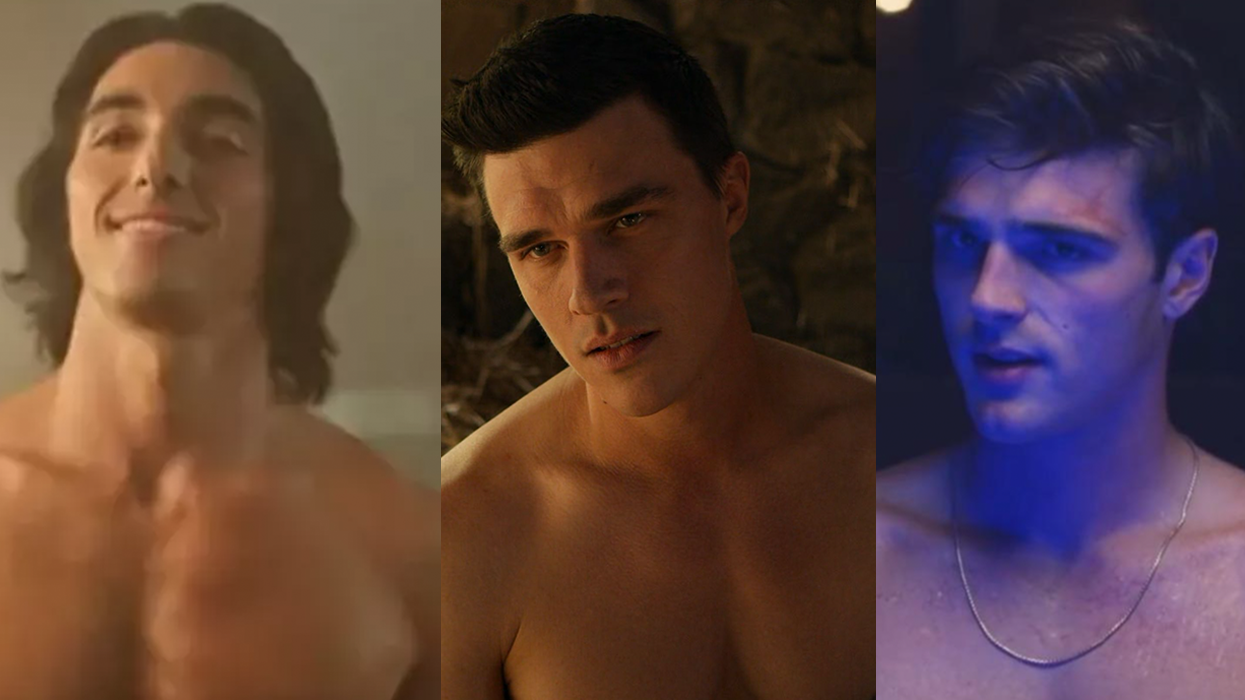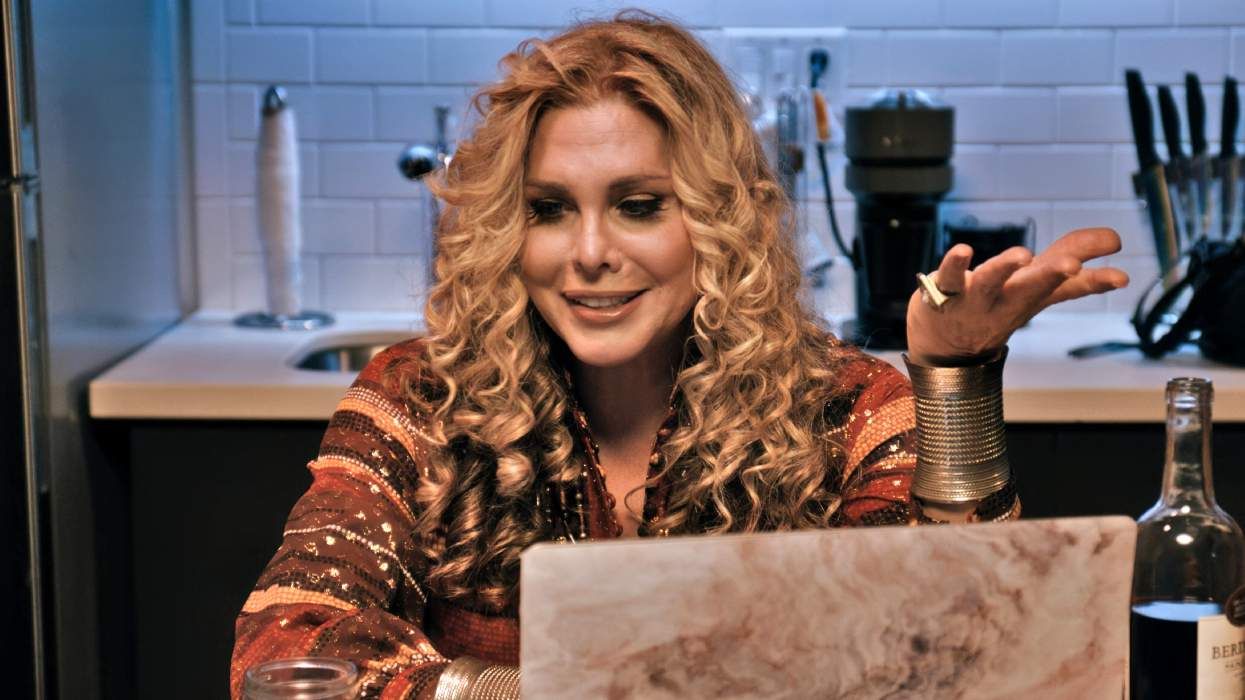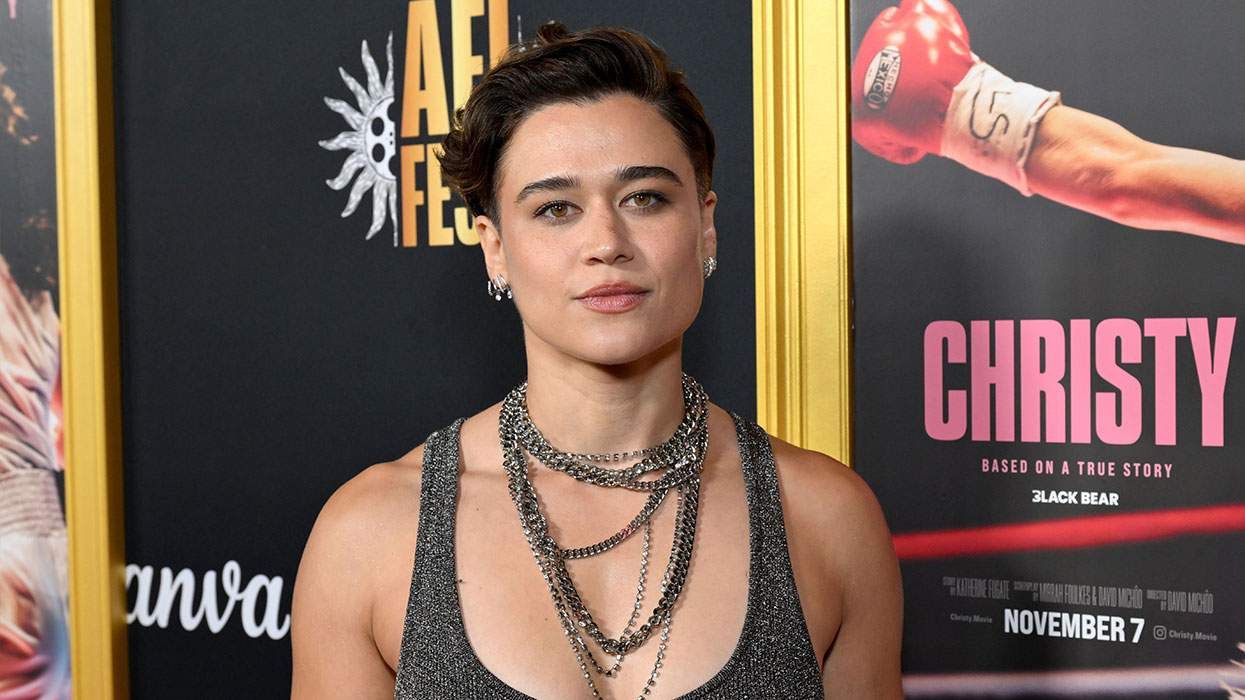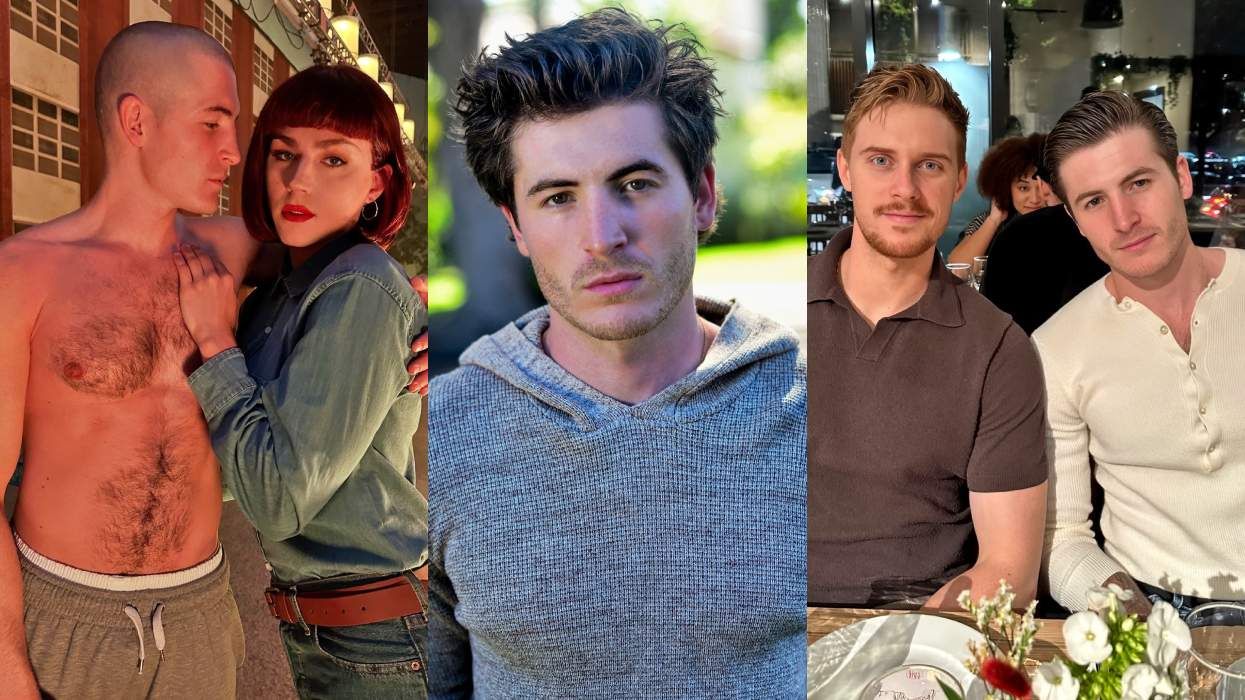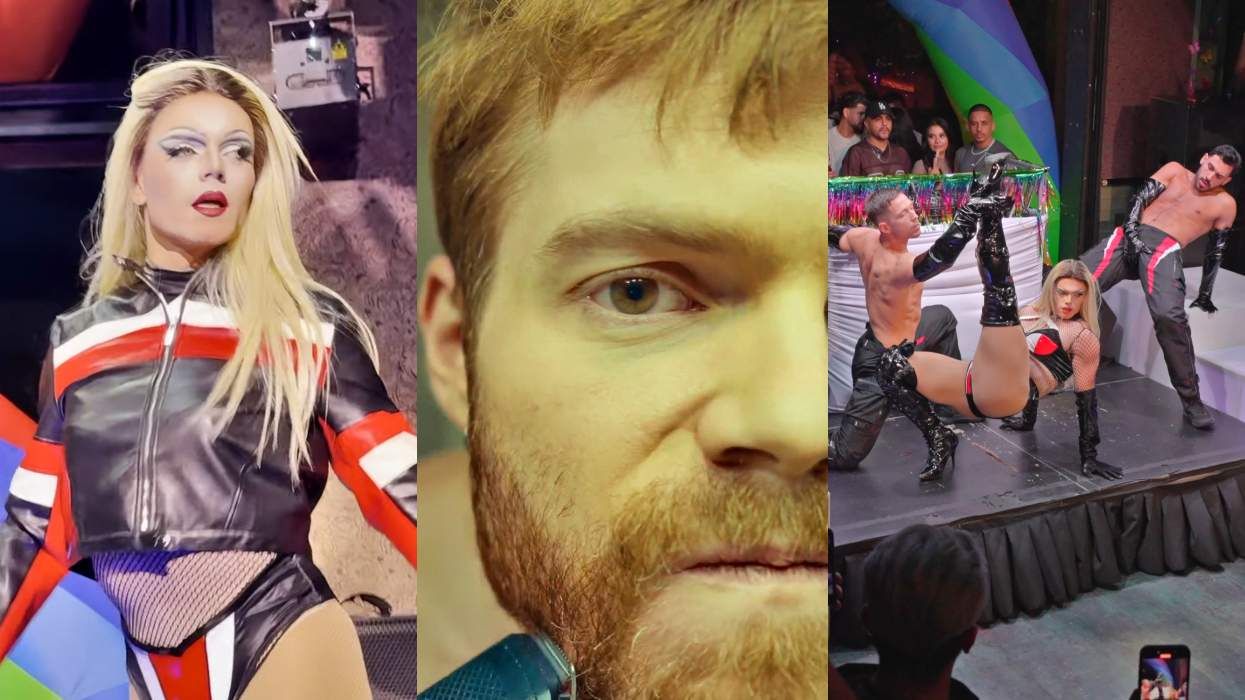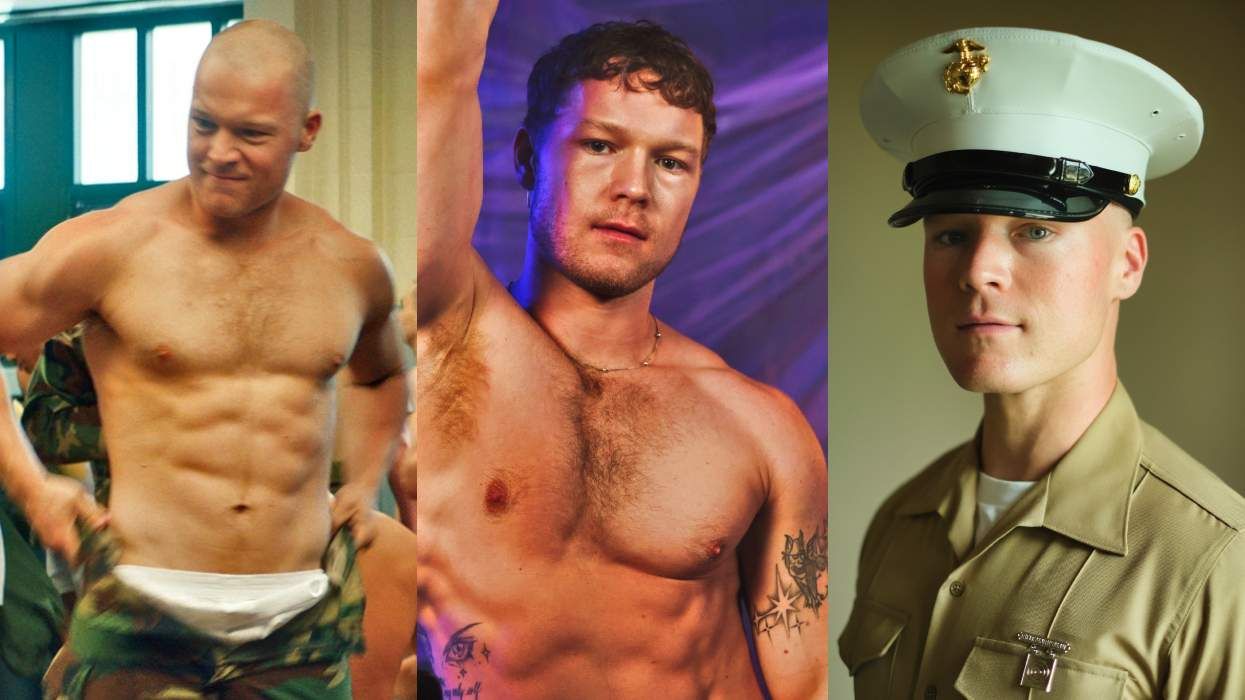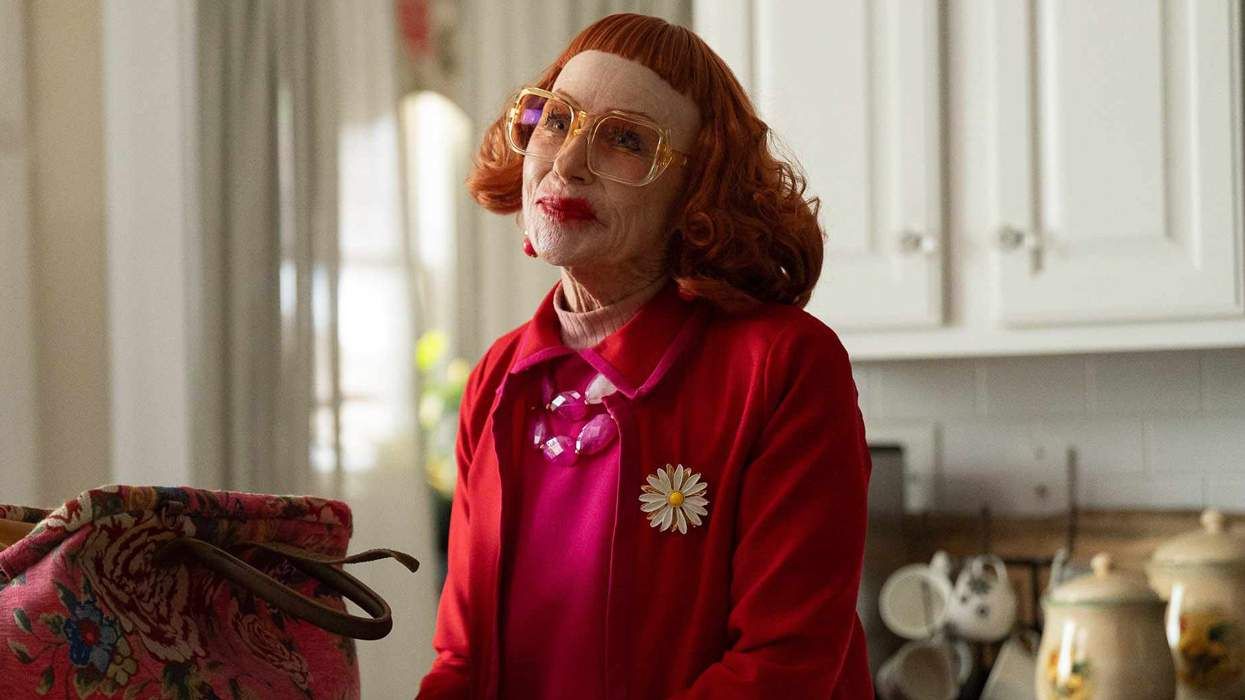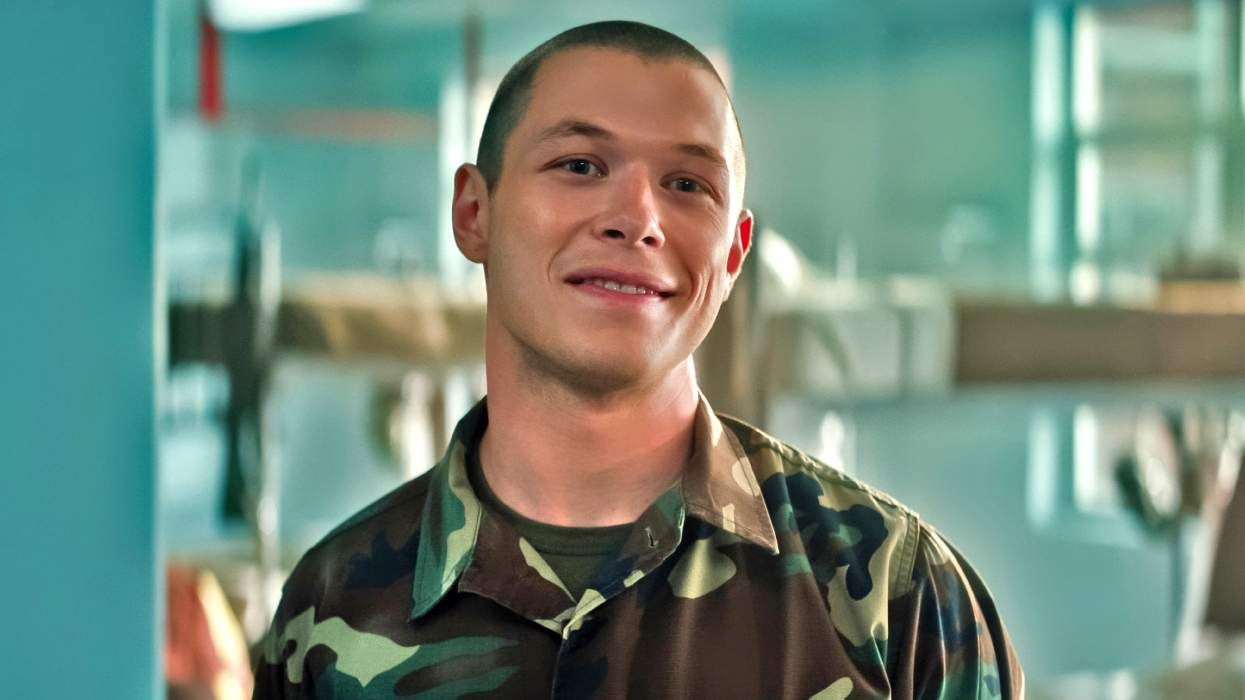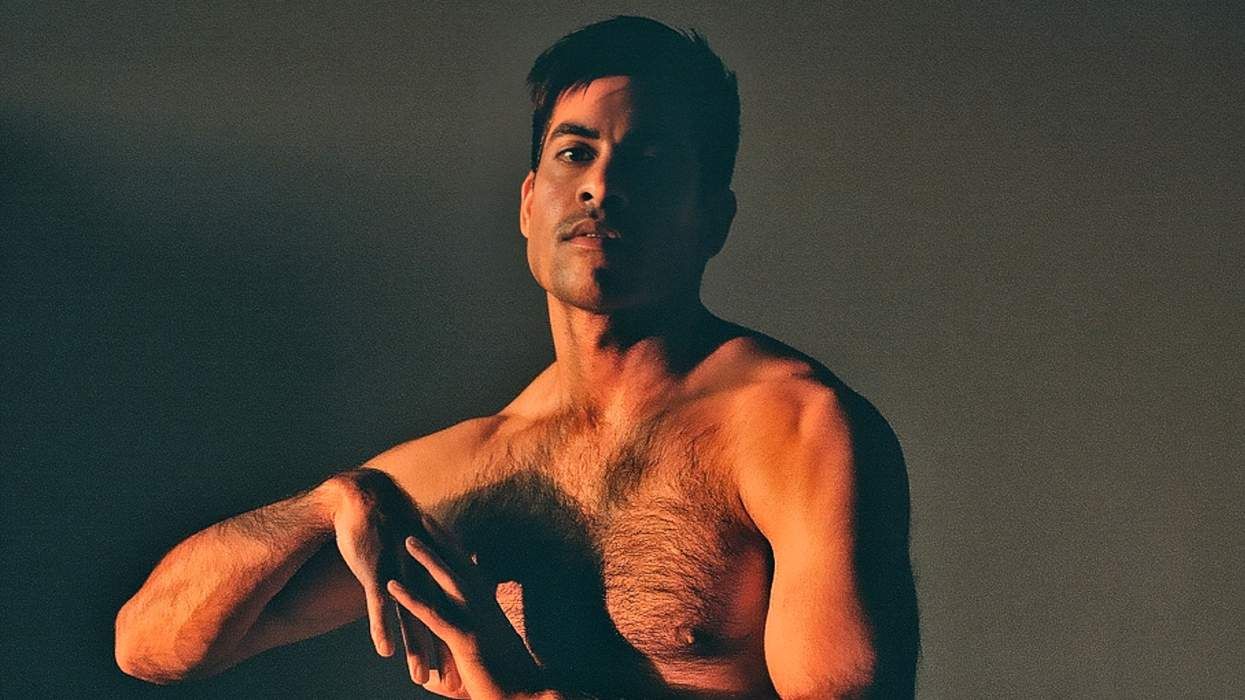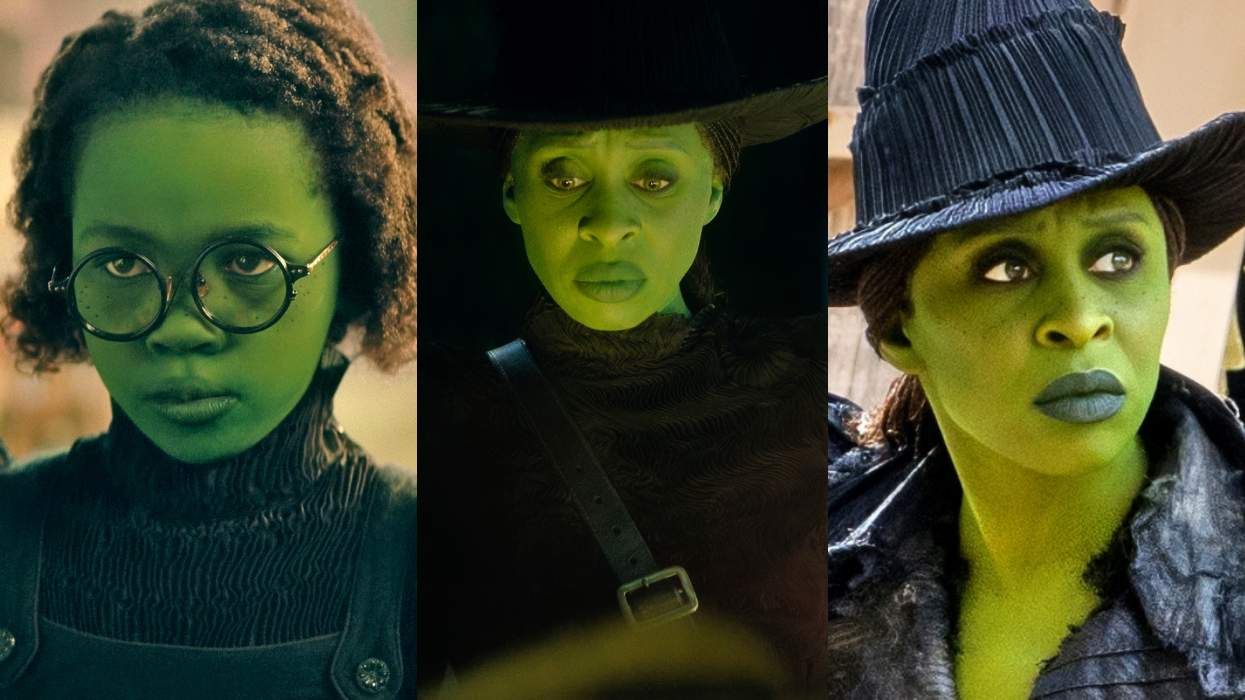Life rarely has those fairytale moments often seen in Disney's animated classic films. Yet, for playwright Chad Beguelin--who is responsible for the book and lyrics of Aladdin on Broadway--his career has come full circle thanks to two productions written by Howard Ashman and Alan Menken, the award-winning collaborators behind Aladdin, Beauty and the Beast, and The Little Mermaid.
In what he called his own "really gay story," Beguelin was inspired to become a writer after his father took him to see an Off-Broadway production of Little Shop of Horrors, one of Ashman and Menken's earliest collaborations.
"It was the first show that I really paid attention to the writing of the songs, especially the lyrics," said Beguelin. "I was so struck by how specific the voices were."
Over 30 years later, at the age of 44, he teamed up with Menken to bring Disney's Aladdin to the stage. Beguelin, however, was in the shadow of Ashman, an openly gay man who died in 1991 at the age of 40 from complications with AIDS. Ashman originally wrote 11 songs with Menken for the Disney film version. While many were scrapped following his premature death, Beguelin and Menken have restored those "lost songs," giving new life to Ashman's vision of a man trying to make his parents proud of what their boy grew up to become.
With a photograph of the man who inspired him to pursue a career in theater on his desk, Beguelin set out to make sure Ashman's lyrics were heard. "It was a crazy magic carpet ride," he said, speaking with Out about the pressures of living up to Ashman's legacy, working with one of his career idols, and what Aladdin means to a gay audience.
On getting involved with Aladdin and deciding to restore Ashman's "lost songs:"
Beguelin: When I was originally approached, it was asked just to do a very straightforward version of the show; it was never aimed at Broadway. It was always going to be just for licensing for regional theaters and schools, so I did a really straightforward draft that was really true to the movie.
After Alan read it, I was summoned to his office and he said: "Look, there all these songs that Howard and I wrote before Howard died that they ended up cutting from the movie. My goal with this would be to get as much of Howard's work back into the show."
For me, the biggest honor has been to get these Howard Ashman songs, which not everybody has heard, back into the show. Howard died so tragically, early at 40, and he would have done so many more amazing things. So I told Allen, "Yes! Let's get these Howard Ashman lyrics heard."
On writing new material that fit with Ashman, Menken and Tim Rice's existing music and lyrics:
Originally, Howard wrote the first batch of songs, and then Tim Rice was brought in to write and produce new songs with Alan. So I sort of studied what Tim did in trying to match the tone of his lyrics. But if you look at what Howard had done initially there was a very specific language he used. It has a '40s vibe to it and I tried to match that. Now we have three different lyricists on the show, so hopefully fans like one Aladdin, not three different guys.
On the jazzier vibe of the musical:
In the original treatment that Howard wrote with Alan, they positioned Genie as a Cab Calloway character. For the movie, the studio got Robin Williams--and then it went in a totally different direction. It was practically a message in a bottle from Howard. No one wants to watch someone try to do a Williams impression for two hours. The treatment allows the actors to be completely different on stage than they were in the film.
On impressing one of his idols--and failing to do so at first:
I was sitting there and Alan had just read the script, and he said it was really funny. "Do people tell you you're funny?" he asked. And I replied, "No, they usually tell me I'm handsome," I replied. But he didn't get it. A few minutes later, everything was fine, but for a moment it was like, "Oh you have ruined your first joke."
When we started writing songs, he would play a melody and turn to me and ask me what I thought. I was sitting there, just looking at all his Oscars, like, "What do you care what I think?! How am I going to say anything to him!"
How Ashman stayed with and influenced Beguelin during the writing process:
I feel like Howard has touched so many people through his work and was taken so soon and so for me it was really it was always about him. Early on in the writing process I decided I had to remember that so I got a picture of Howard and I put it on my desk and I put it on my laptop. Though, I never told Alan this.
Then one day, really late in the process, we were rewriting a verse for the show. We were already in rehearsals and I couldn't download the song because I'm an idiot with computers, so Alan asks for my computer. When he sees the picture of Howard on my computer, he asks, "Is that Howard?" I explained to him I didn't want him to see that because I didn't want him to think I was crazy, but I also wanted to feel like Howard was here. Then Alan said to me, "He is here all the time. He's here with us now. He's been with us the whole time."
What Ashman's "lost songs," including "Proud of Your Boy," mean to a gay audience:
"Proud of Your Boy" is one of those songs that I think everyone can relate to because at some point, no matter how horrible your relationship with your family is, you do want to make your parents proud. I don't want to speak for Howard, but I know for me, there is another level to it being gay, that moment when you realize and you wonder what your parents are going to think.
How Aladdin is an allegory for coming out and acceptance:
I think there's the message that you don't have to be somebody else and the more you try to be somebody else and pretend to be somebody else, the worst things are going to go. At the very end, when you say, "Look this is who I am," everything magically lifts. Once you finally accept your truth, then you will be free.


